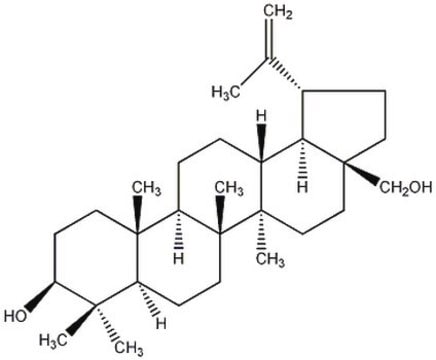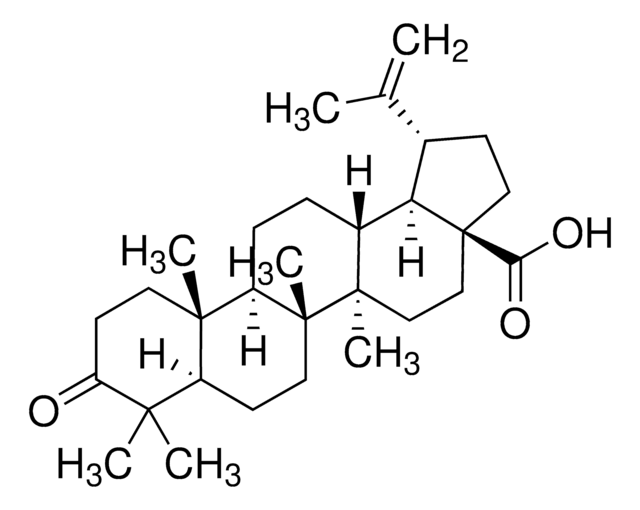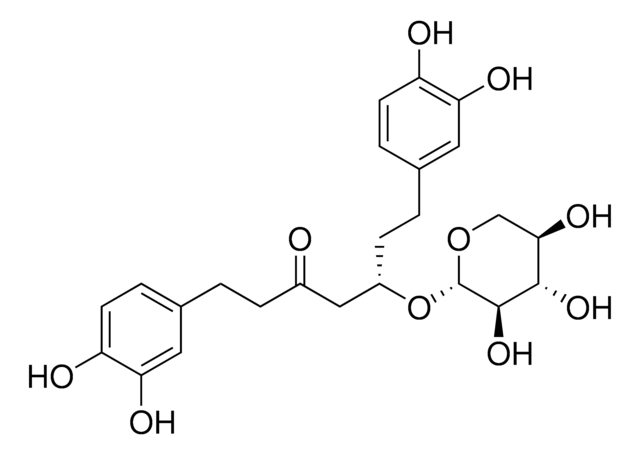B8936
Betulinic acid
≥98% (HPLC)
Synonyme(s) :
3β-Hydroxy-20(29)-lupaene-28-oic acid, Lupatic acid, Mairin
About This Item
Produits recommandés
Pureté
≥98% (HPLC)
Forme
powder
Pf
295-298 °C (dec.) (lit.)
Application(s)
metabolomics
vitamins, nutraceuticals, and natural products
Température de stockage
2-8°C
Chaîne SMILES
CC(=C)[C@@H]1CC[C@@]2(CC[C@]3(C)[C@H](CC[C@@H]4[C@@]5(C)CC[C@H](O)C(C)(C)[C@@H]5CC[C@@]34C)[C@@H]12)C(O)=O
InChI
1S/C30H48O3/c1-18(2)19-10-15-30(25(32)33)17-16-28(6)20(24(19)30)8-9-22-27(5)13-12-23(31)26(3,4)21(27)11-14-29(22,28)7/h19-24,31H,1,8-17H2,2-7H3,(H,32,33)/t19-,20+,21-,22+,23-,24+,27-,28+,29+,30-/m0/s1
Clé InChI
QGJZLNKBHJESQX-FZFNOLFKSA-N
Vous recherchez des produits similaires ? Visite Guide de comparaison des produits
Description générale
Application
- to test its effects as an antiviral agent against Dengue virus (DENV)
- as a sterol regulatory element-binding protein (SREBP) inhibitor to repress the lipid metabolism and proliferation of clear cell renal cell carcinoma (ccRCC) cells
- as a treatment to test its anti-tumor properties for cell viability and apoptotic cell death assays in multiple myeloma models
Actions biochimiques/physiologiques
Code de la classe de stockage
11 - Combustible Solids
Classe de danger pour l'eau (WGK)
WGK 3
Point d'éclair (°F)
Not applicable
Point d'éclair (°C)
Not applicable
Certificats d'analyse (COA)
Recherchez un Certificats d'analyse (COA) en saisissant le numéro de lot du produit. Les numéros de lot figurent sur l'étiquette du produit après les mots "Lot" ou "Batch".
Déjà en possession de ce produit ?
Retrouvez la documentation relative aux produits que vous avez récemment achetés dans la Bibliothèque de documents.
Les clients ont également consulté
Notre équipe de scientifiques dispose d'une expérience dans tous les secteurs de la recherche, notamment en sciences de la vie, science des matériaux, synthèse chimique, chromatographie, analyse et dans de nombreux autres domaines..
Contacter notre Service technique











